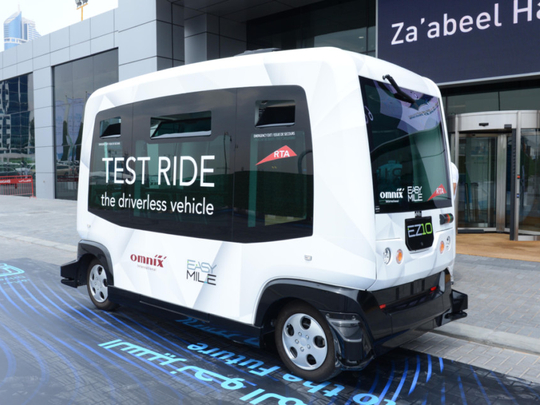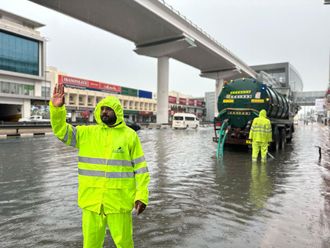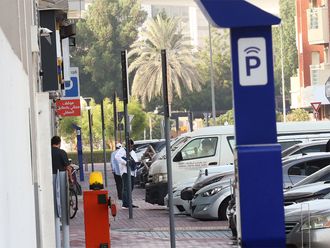
Dubai: The trial of the driverless vehicle moves to Business Bay in its third phase as the Roads and Transport Authority (RTA) tests its utility under different conditions and routes.
EZ10, a 10-seater autonomous vehicle jointly built by Omnix International and Easy Mile, has been on trial since June, moving from Dubai World Trade Centre in phase one to Mohammad Bin Rashid Boulevard in Phase Two.
The trials are part of RTA’s efforts to explore autonomous mobility options for public transport in the city and these will continue to move to different areas.
“RTA is considering broadening the deployment of autonomous vehicles in other areas of Dubai, including metro stations, malls and tourist spots,” said Ahmad Behroozian, CEO of RTA’s Licensing Agency, who is also the chairman of the Smart Vehicles Committee.
He said that RTA is working on drafting rules and legislation for the implementation of the smart mobility strategy of Dubai.
Though the authority is exploring different technologies, EZ10 is being looked at as a last-mile solution.
“We are setting out well-defined legal structures covering key aspects of the policy of using autonomous vehicles in the first and last mile stage, business centres, residential complexes and parks,” he added.
EZ10 is an electric shuttle that can run in both directions as it has no specific front or rear. Designed as a solution for short distance public transportation, the shuttle runs back and forth on a single traffic lane.
The third phase of the trial will see the vehicle running on a 650-metre-long track in the Business Bay District, allowing up to 10 people per ride.
“This trial is part of RTA’s plan to test the technologies and operation of autonomous vehicles under the climatic conditions of Dubai and educate community members about autonomous vehicles, while also sensitising the people about Dubai Government’s strategy for smart vehicles,” said Behroozian.
Dubai has set out a strategy of converting 25 per cent of total mobility services in Dubai to various types of driverless transit means by 2030.
He said the trial seeks to probe people’s perception about autonomous transport through a questionnaire.
“Autonomous vehicles have continued to receive positive feedback, proved by the rider satisfaction rating of 95 per cent derived from the experience at the MBR Boulevard during a month-long trial period in September,” said Behroozian.
According to the survey conducted during the previous trial phases, 96 per cent of riders in the age group of 20 to 40, expressed satisfaction with the safety specifications and 95 per cent were interested in the deployment of the vehicle as a public transit means.
The survey showed that about 69 per cent of respondents were not concerned with the lack of a driving control system and 62 per cent were not concerned by the legal responsibility in case of an accident involving other vehicles.
Among the riders, 70 per cent expressed no concern with the vehicle sharing space with pedestrians, private vehicles and bicycles.
Some 85 per cent of the respondents expected the technology to reduce vehicle accidents and increase road safety, while 88 per cent believed the vehicle could result in reduced traffic congestion.
The survey also reflected people’s perception that the vehicle will help reduce fuel consumption and insurance premium.
The respondents included public transport riders, private motorists, tourists, citizens and residents of the UAE.












